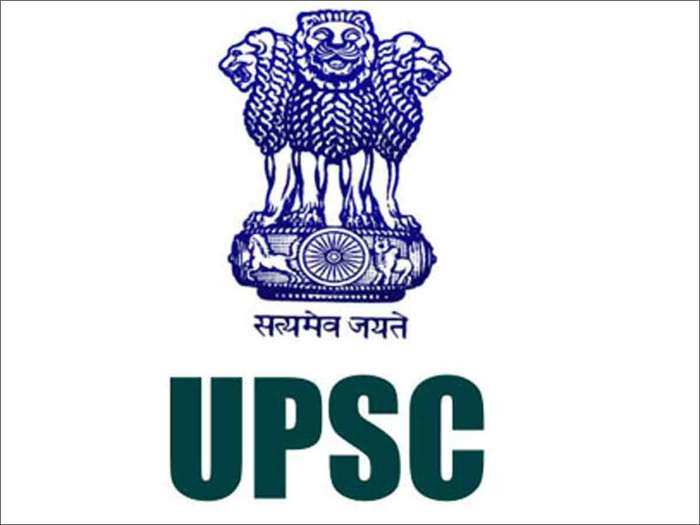UPSC Mains Result 2022
Engineer Akshesh Mahendrabhai has topped the UPSC Mains Result 2022, Akshesh has previously qualified the 2021 UPSC CSE Examination with all India Rank 601, Akshesh did his UPSC CSE Coaching from Drishti IAS Coaching Institute New Delhi.
IAS stands for Indian Administrative Services. Union Public Service Commission conducts civil services exams every year to recruit eligible & deserving candidates for the post of IAS Officer. The UPSC CSE exam is one of the toughest examinations in the country. More than 10 lakhs of candidates appear for this exam every year, but only a few of them could crack it and secure the IAS officer post.
UPSC IAS Overview
Have a look at the table shared below to know the complete overview of the UPSC Civil Services Examination;
| Conducting Body | Union Public Service Commission |
| Exam Name | Civil Services Exam |
| Level | National |
| Frequency | Once a Year |
| Mode of Exam | Offline |
| Selection Stages | Preliminary Exam, Mains Exam, and Personality Test (Interview) Round |
UPSC IAS Eligibility Criteria
Candidates must satisfy all the UPSC IAS eligibility criteria before applying for the post. There are various factors associated with the IAS eligibility conditions like age limit, educational qualification, and nationality as shared below:
Nationality
A candidate must be either
- a citizen of India, or
- a subject of Nepal, or
- a subject of Bhutan, or
- a Tibetan refugee who came over to India before 1st January 1962 for getting permanently settled in India, or
- a person of Indian origin who has migrated from Pakistan, Burma, Uganda, the United Republic of Tanzania, Zambia, Malawi, Sri Lanka, East African countries of Kenya, Zaire, Ethiopia and Vietnam to permanently settle in India.
Age Limit
The age of the candidate must be between 21 years-32 years as of the prescribed date when applying for the UPSC Civil Services Examination. However, there shall be a relaxation on the upper age limit of the reserved categories candidates.
Minimum Educational Qualification
Candidates must possess a graduation degree from any recognized University in order to be considered eligible to apply for the UPSC IAS recruitment process.
HOW TO START PREPARING FOR UPSC EXAM 2024?
Despite being one of the most challenging assessments, the UPSC examination can be cleared at the very first attempt. Aspirants can accomplish their dream if they approach the preparation with the following strategies.
PLAN THE SCHEDULE
Starting early can be fruitful if the preparation schedule is well-planned. UPSC demands a combination of both hard and smart work. Candidates must keep their syllabus handy in print format to set their daily goals and mark progress.
Aiming for the 2024 examination, aspirants should build their basics by February 2023. One must understand the exam well from the syllabus, exam pattern, and timeline. Skimming through previous years’ papers can help comprehend the types of questions asked and shortlist the important topics accordingly. Test-takers should dedicate a significant amount of time daily to cover the modules and save time for revision through the preparation journey.
PROCURE GOOD STUDY MATERIALS
Strengthening the foundation and grasping advanced knowledge require standard books and study materials. NCERT books are a reliable source for securing a basic idea of the modules. They can be downloaded for free from the official website and must be read at least twice before making notes.
After assimilating the basics, aspirants should concentrate on penetrating the topics and imbibing advanced knowledge. Keeping 50 percent of the day for general studies and the rest for the optional modules may help conclude the advanced preparation by June 2023. During this time, examinees are advised to refer to books and study materials or take online/offline courses from reputed civil service course providers to explore the various concepts.
READ NEWSPAPERS
Newspapers are an integral part of civil service preparation as they keep the candidates updated about the current happenings across the globe. However, the goal should be to read specific portions without devoting much time.
The most recommended chronicles for UPSC examinations are “The Hindu” and “The Indian Express”. Reading and compiling important pieces on National and International events, Economic updates, Parliamentary Affairs, and General issues should suffice the purpose. However, reading newspapers can be intimidating initially due to the plethora of fact analyses and perspectives. In that case, candidates can opt for a premium-quality career magazine that covers all relevant news articles in a month. Nevertheless, aspirants should spend no more than 60 minutes on newspaper reading to balance the preparation routine.
PRACTICE DAILY
Examinees must strive to complete their learning by January 2024, followed by revisions and practising mock papers to keep the concepts abreast. While the application notification for the examination shall be released tentatively in February 2024, candidates will have ample time to develop writing skills and groom their personalities for the interview.

